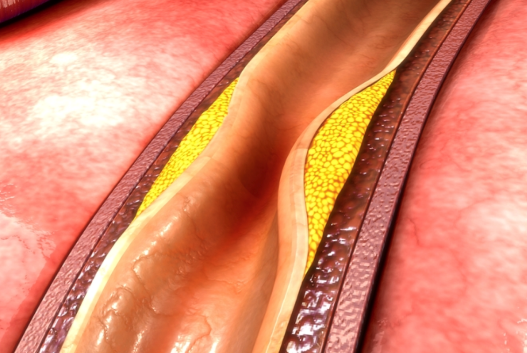What is a Coronary Calcium Score ?
The health of your heart is one of the most important measures of your overall health, for obvious reasons. Without a healthy heart, you are going to run into a number of different issues along the way – some of which may be life-threatening. So, it’s understandable that you would want to keep track of the health of your heart, so action can be taken if there are any notable risks. One great way to evaluate your heart’s health is through the use of a Coronary Calcium Score.
The Basics
To get started, let’s discuss what this test is and why it can be important. A coronary calcium score test is non-invasive, as it only requires a CT scan to be completed. The goal here is to measure how much calcified plaque has built up within heart’s arteries. It might go without saying, but the hope is that a coronary calcium score test will find a relatively low level of plaque in the walls of your arteries. A significant amount of plaque will place you at an increased risk of a heart attack, so knowing your score is a helpful indication of how likely you are to experience a heart attack event in the future.
Is This Test for Everyone?
It’s not practical to perform this test on every single individual, so it is typically advised for those with at least a moderate risk of heart disease. For instance, if you are younger than 40 and there is no history of heart disease in your family, it will probably not be necessary to have a coronary calcium score test performed at this time. With that said, a test may be called for later on, as you age, and as other risk factors may present themselves.
On the other end of the spectrum, this test will probably not be used on those who are already aware that they are at a high risk for a heart attack. If it’s already known that a heart attack is a real possibility, there will be nothing new learned by going through the process of having a coronary calcium score determined. The patient is already aware of his or her risks, so the doctor can simply work on taking steps to improve their outlook without taking the time to produce a coronary calcium score.
The Procedure
If it is determined that you are a good candidate for a coronary calcium score test, you may have questions about what to expect during the exam. Fortunately, this is a relatively comfortable experience for most people, and there isn’t much to worry about in terms of risks or side-effects. As mentioned earlier, this is a non-invasive test that uses a CT scanner to acquire images of your heart.
You’ll be moved into a CT scanner so pictures can be taken by a technician. It doesn’t take long for the machine and the technician to do their work, as you should only be in the machine for roughly 10 minutes in most cases. When the imaging is complete, you should receive the results almost immediately, as the score is done automatically by the computer. When completed, you should be able to continue on with your day without any limitations.
Understanding the Score
You will be hoping to see a low score when your coronary calcium score test is completed, as a low number indicates a low level of plaque buildup. The best-case scenario is to have a score of 0 returned by the machine, indicating that no plaque was detected. Although that’s a desirable outcome, it’s not particularly likely as those who are referred for this test are typically already at a moderate risk for heart disease. If you do receive a score of 0, you can feel good about your low chance of heart attack moving forward.
Even if you don’t receive a 0 score, a score below 10 is still an excellent result that represents a low risk of a heart attack. Once you move into the range of 10 – 100, you will start to see the odds of a heart attack increase slightly. A score over 100 is an indication of heart disease, and anything over 400 shows significant heart disease that requires prompt treatment to mitigate the odds of a cardiovascular event.
Work with Your Doctor
While the test is automated, and your score will be calculated by the computer, it’s still important to work closely with your doctor to understand the results and plan a path going forward. This score is just one piece of your heart-health puzzle, so it takes a qualified doctor to consider all of the various factors before offering advice on treatments moving forward.
At Beverly Hills Cardiovascular, Dr. David Filsoof and his staff will work hard to provide you with the best possible heart health care. We offer a variety of services in our Beverly Hills offices, so it’s likely you’ll be able to have the tests you need right here at our location. Some of our services include electrocardiogram, echocardiography, treadmill exercise stress test, and more. To get started, please contact us right away to learn more and to make your first appointment. Thanks for stopping by!
